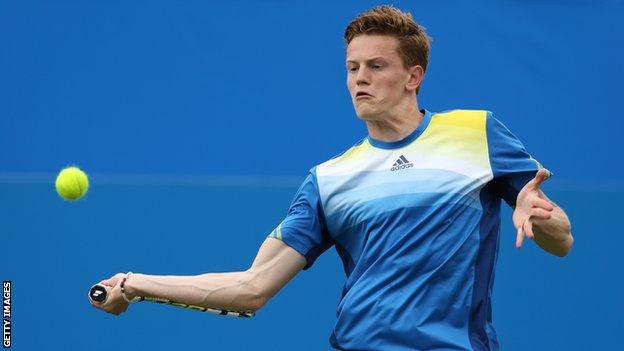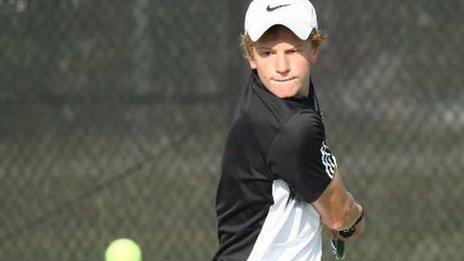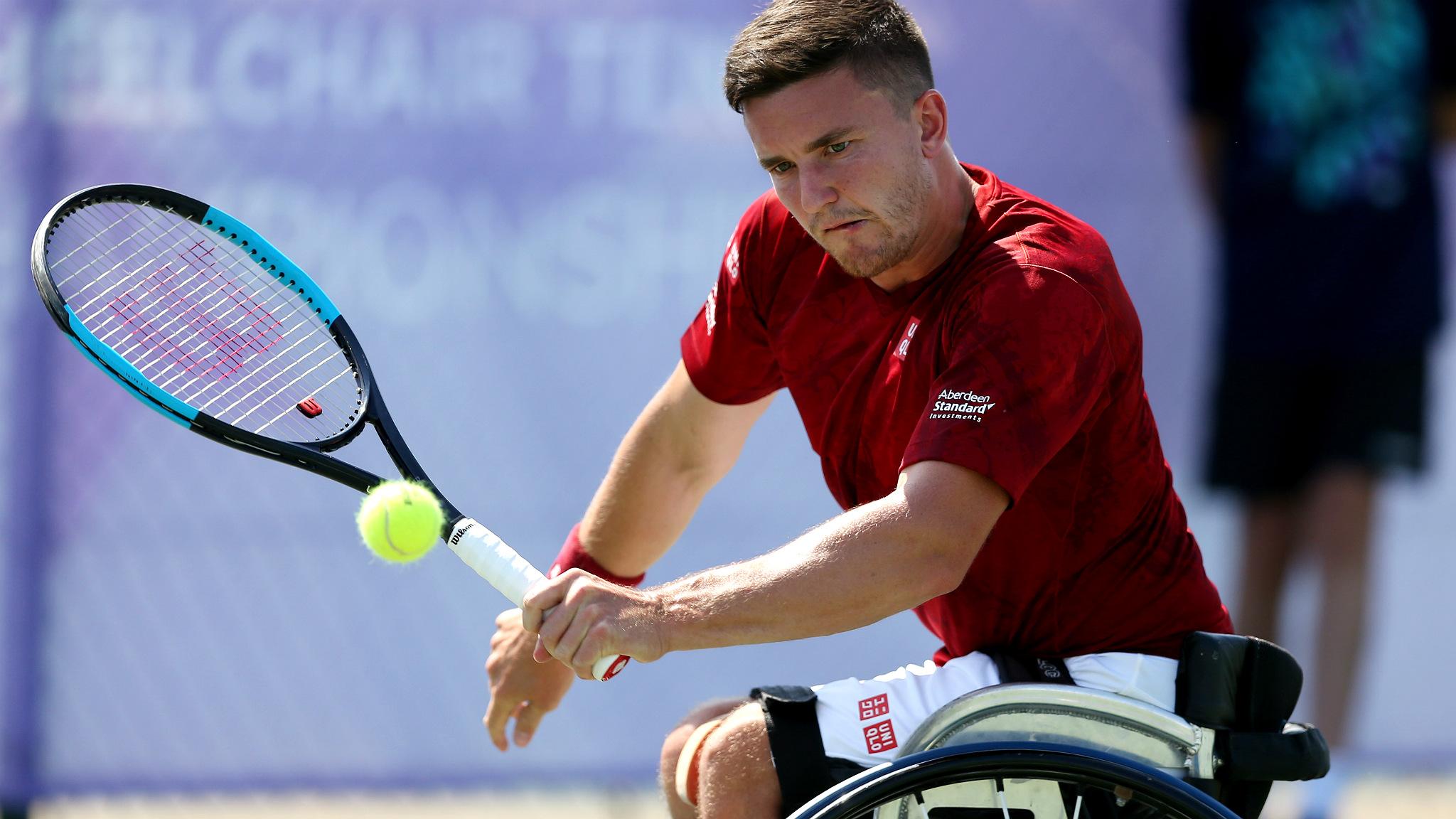Scott Clayton: The struggles of a budding tennis professional
- Published

Clayton has reached the last 16 on 11 occasions in singles events, but never made the quarter-finals
To fans of the sport, the world of tennis must seem a glamorous place, with top players jetting around the globe, endorsing luxury watches and perfumes, not to mention playing for millions in prize money.
But for every individual competing in a Grand Slam tournament, there are many more plying their trade at events that struggle to find space in local newspapers, let alone a global audience of millions.
Scott Clayton from Jersey is one of those players.
He is a former British Under-18 singles champion and as a 14-year-old won the prestigious Road to Wimbledon tournament., external
But the youthful promise shown by the current British number 106 does not guarantee anything in an ultra-competitive sport.
Scott Clayton on his professional tennis prospects |
|---|
"The average age of a player in the top 100 is about 28, so I feel I've got a few years left." |
Now 20, he currently has a world ranking of 1,181 in singles, but has reached a career-high 568 in doubles after winning two Futures titles with fellow Briton Richie Gabb in Turkey earlier this month.
Despite that, the realities of the tennis circuit are all too harsh for him.
"Financially the sport is very tough, you're travelling the world paying for flights and hotels.
"Right now it's the bank of Mum and Dad that's helping me out a lot," said Clayton, who has played in Turkey, Canada, the United States, Qatar and Cyprus in the last 12 months.
"In tennis right now, the level where I'm at, the prize money is not great.
"It's nothing compared to what your expenses are, you're far from breaking even, but you have to go through those stages to get to the higher stages of professional tennis where the money is," he told BBC Radio Jersey.
Winning an International Tennis Federation circuit Futures doubles title brings prize money of just $620 (£382) to share, hardly enough for the flight, let alone the week-long hotel stay.
The money is better in singles, with a winner pocketing $1,440 (£888), but Clayton has never progressed past the last 16, and the $172 earned (£106) just about covered his taxi rides to and from the airport.
Haves and have nots - tennis prizes comparison | ||
|---|---|---|
Round | $10,000 Futures singles event | Wimbledon |
Winner | £888 | £1.76m |
Final | £523 | £880,000 |
Semi-final | £310 | £440,000 |
Quarter-final | £180 | £226,000 |
Last 16 | £106 | £117,000 |
Last 32 | £64 | £71,000 |
Last 64 | N/A | £43,000 |
Last 128 | N/A | £27,000 |
Despite the financial hardship, there is little time for Clayton to supplement his income in other ways.
"A standard day for me is training five to six hours including the gym and on court stuff - the last thing your body can handle after that is to do a job," he said.
"Right now this is my job, unfortunately the payment isn't great.
"If I do have some spare time I try and give hits to kids or lessons just for a bit of extra money."
So why bother?
Well, the money might be poor, but it is the ranking points that players travel all over the world for and points eventually equal prizes - the higher your ranking, the better level of tournament you can enter and the more points you win.
It is a virtuous circle for winners, but not if a player hits a run of bad form or injury.
Clayton missed a huge chunk of this year with a shoulder injury which could not have come at a worse time.
Scott Clayton's career record |
|---|
Career-high singles ranking of 1096 (September 2014) |
Ranked 568 in doubles |
Won three doubles titles in ITF Futures events |
Made the last 16 11 times in singles, but has never reached a quarter-final |
He had just beaten his highest-ever ranked opponent, France's current world number 326 Enzo Couacaud, in a tournament on the Wirral before he had to take time out for surgery.
"It was a big setback that I wasn't playing," said Clayton.
"I had a good training block in January and then had a career-high singles ranking win when it started getting worse and I needed the operation.
"I returned in June for the grass court season and had a lot of close matches where I could have won and at least I was creating the chances."
But has his chance to make it big in tennis already passed?
Rafael Nadal turned 19 just days before won Wimbledon for the first time in 2003., external
"The average age of a player the top 100 is about 28, so I feel I've got a few years left," Clayton insisted.
"The players that have won big tournaments in their teenage years are the phenoms like Nadal.
"Nick Kyrgios, who's a year younger than me, made the quarter-finals of Wimbledon, which is an amazing achievement, but I don't think you'll see many more cases like that.
"The sport's getting very physical, you've got to be a serious athlete now to be competing with those top guys.
"My main focus is to keep pushing that ranking up, but ultimately just getting better. If I can get better on the court then the ranking will follow."
It's a long way to the top if you wanna rock n roll, said AC/DC. The same is true of tennis too.
- Published21 February 2014
.jpg)
- Published26 August 2012

- Published28 November 2013
.jpg)
- Published17 June 2019
